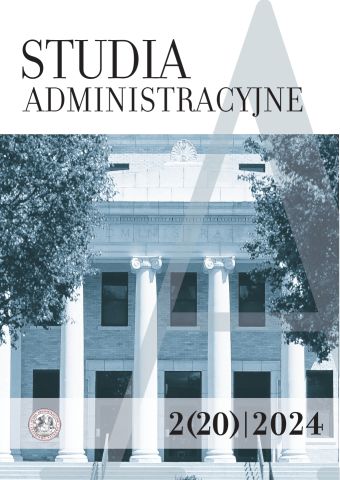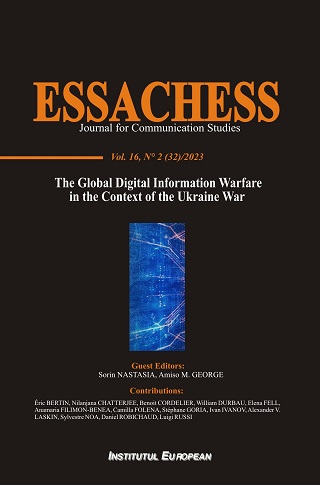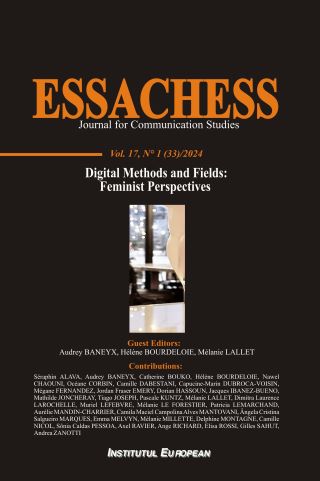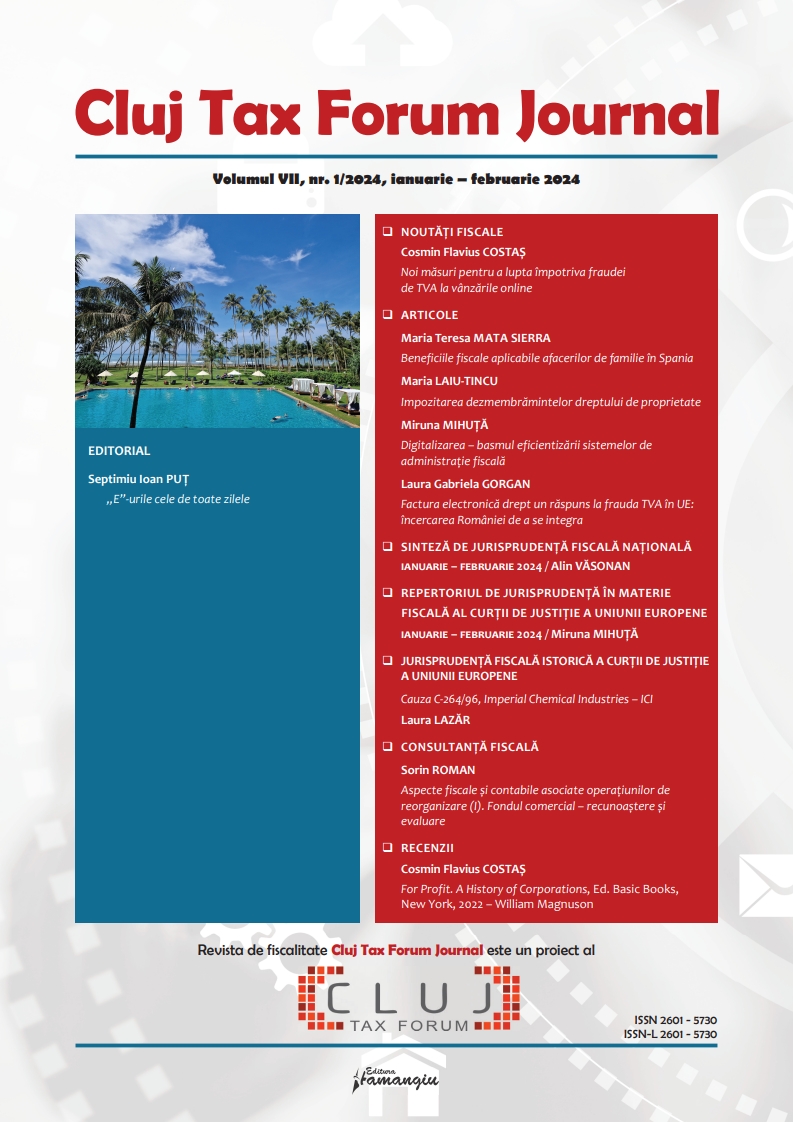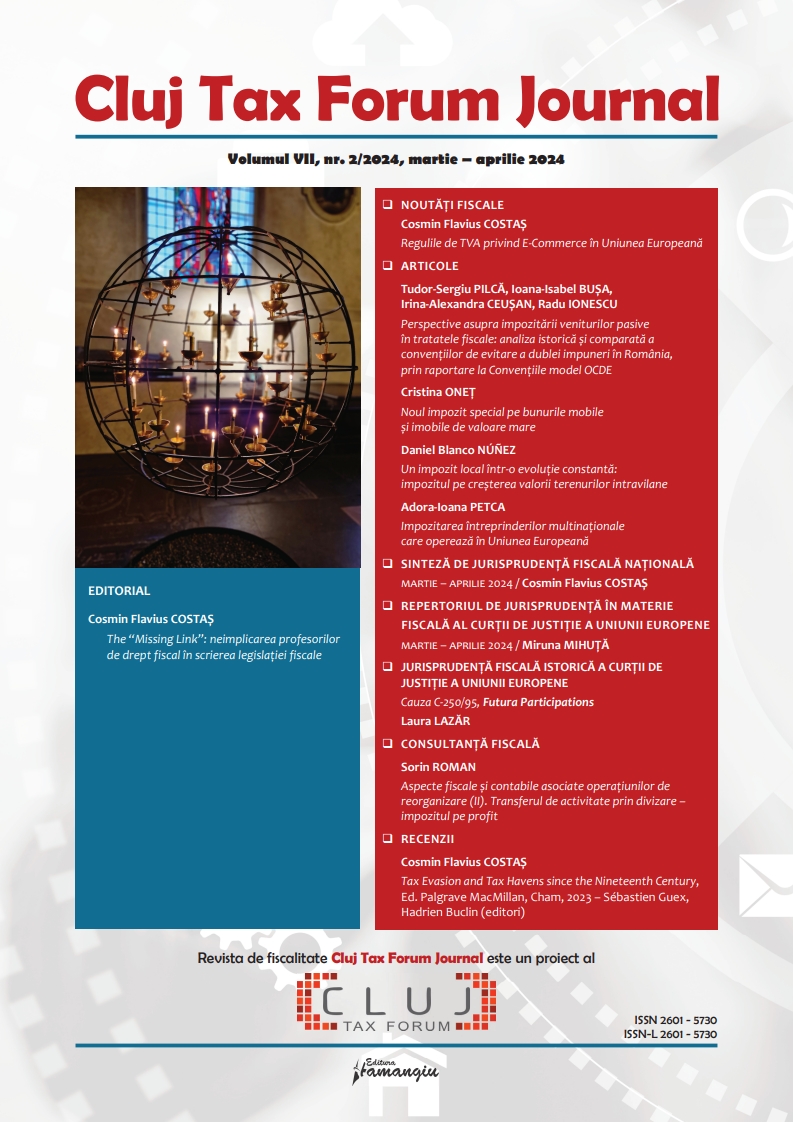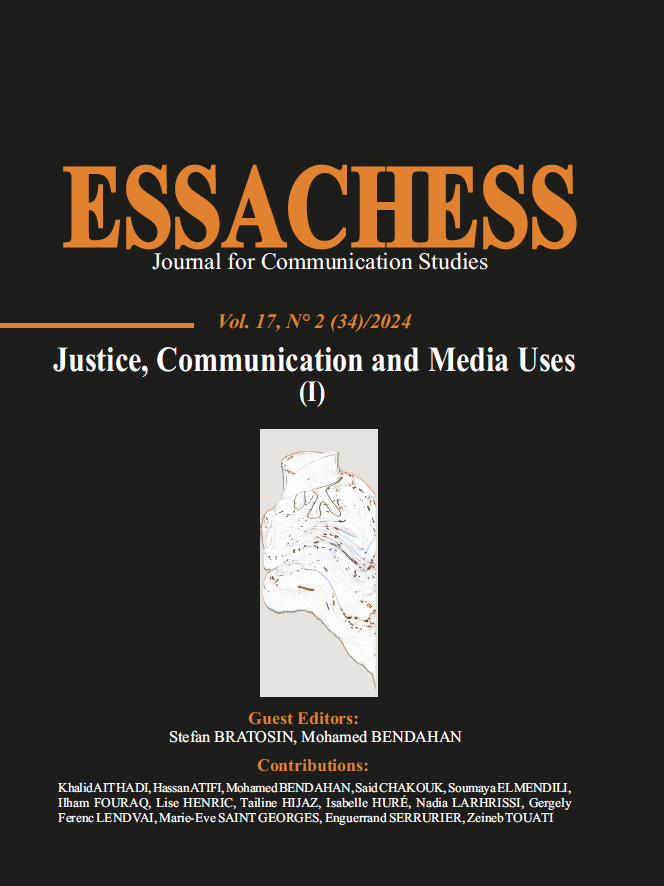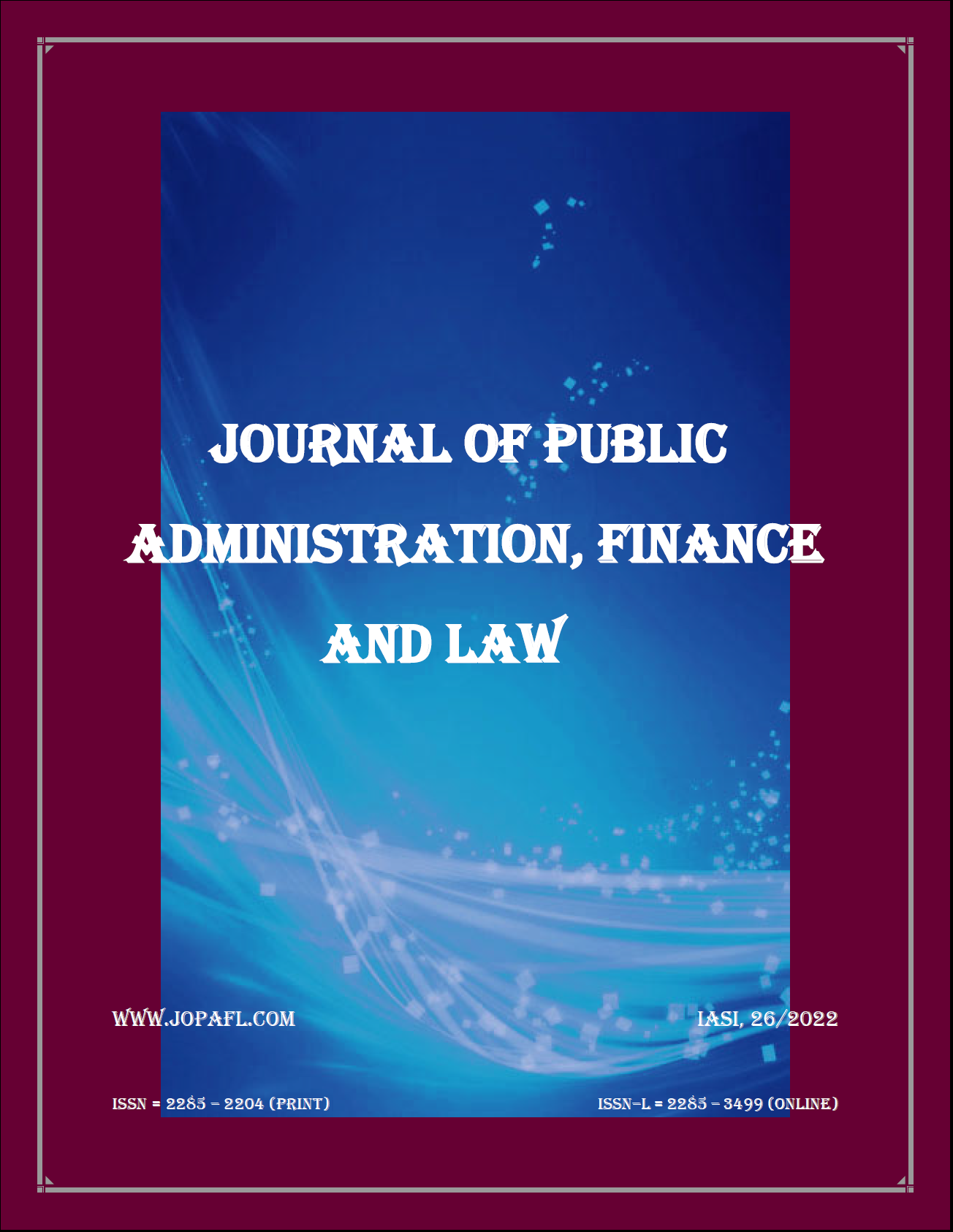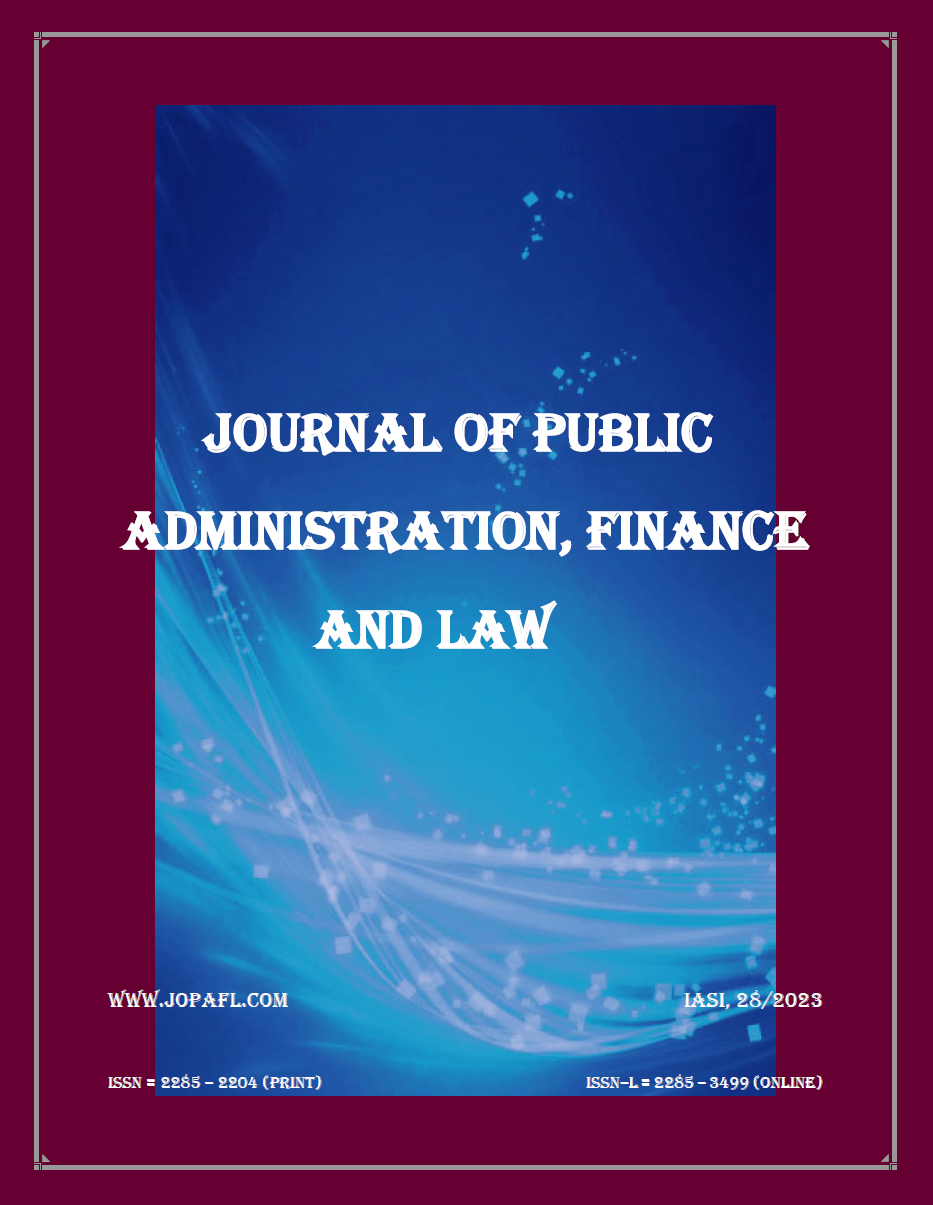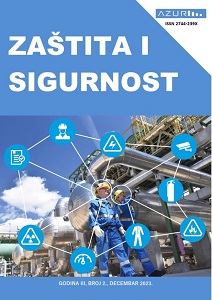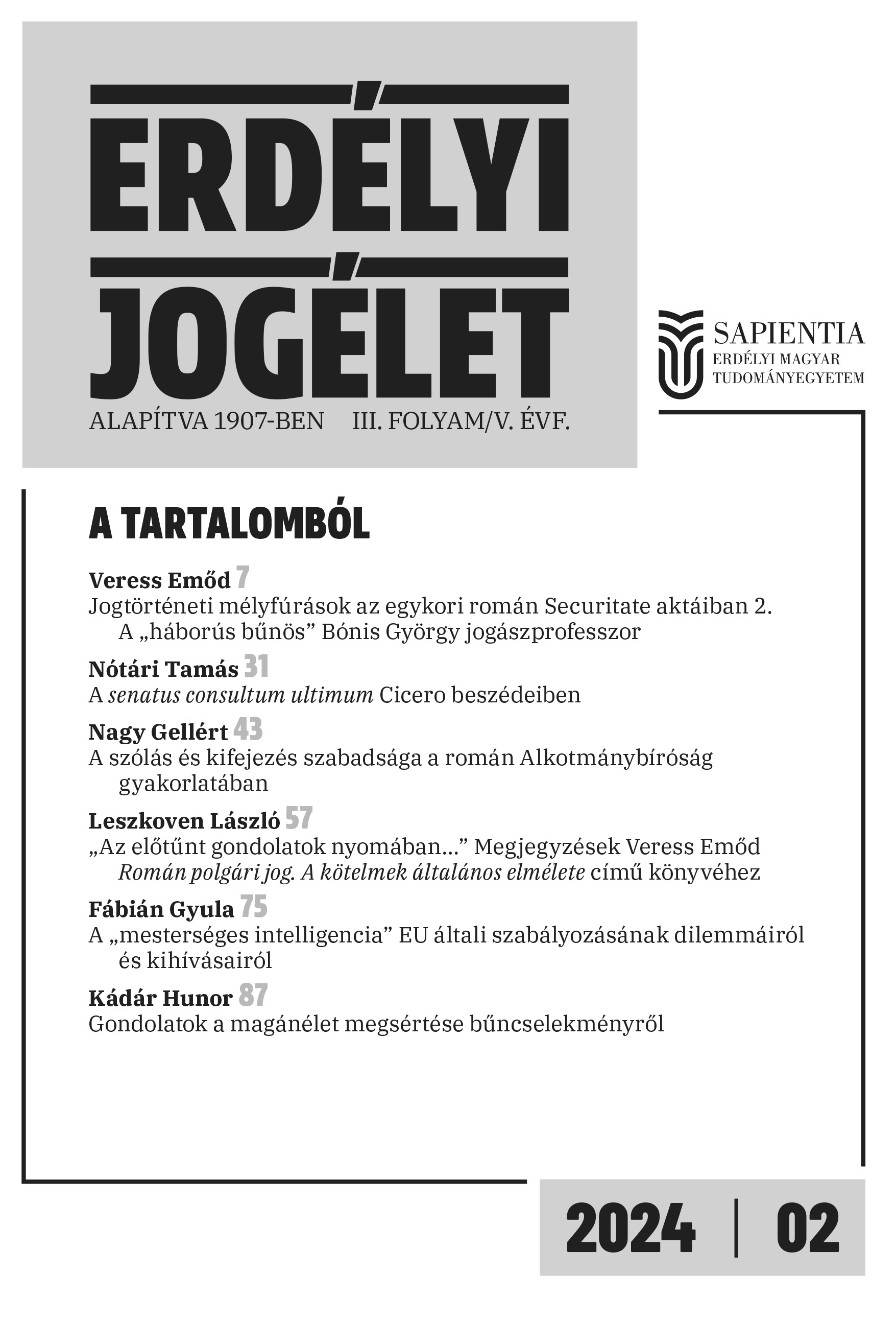Author(s): Cristina Oneţ / Language(s): Romanian
Issue: 2/2024
“The special tax on high-value movable and immovable property”, as it was named by the fiscal legislator, was established by Law no. 296 of October 26, 2023, and came into effect on January 1, 2024. In the public sphere, it has been nicknamed the “luxury tax”, and this study provides an analysis of these new regulations from multiple perspectives. This paper discusses how the mechanism for this tax was designed, as well as
the impact it will have from various aspects.
Thus, the study includes several relevant observations regarding the categories of subjects targeted to bear this new tax burden, the conditions and circumstances under which the tax will operate, the method of determining the taxable value and the non-taxable value threshold, and comments on the tax rate and its application to the tax base.
At the same time, although the tax has only been in effect since this year, and financial data to justify its imposition or, conversely, to demonstrate its inadequacy have not yet been collected, we anticipate a failure of the tax. The arguments presented in the content of this paper refer to its incorrect structuring (the tax’s base), the lack of efficiency in terms of the budget revenues it will generate for the state budget, but, above all, we argue regarding its inopportuneness and its negative impact on the Romanian economy.
More...


